The DANEMO Symposium features presentations by outstanding researchers from both EMBL and Denmark, representing the new research themes Planetary Biology, Human Ecosystems, and Microbial Ecosystems in EMBL's new programme "Molecules to Ecosystems".
Further, learn more about the scientific facilities and funding opportunities offered to life scientists and students in Denmark by both EMBL and EMBO, and hear inspirational short talks by young researchers pursuing their research career at EMBL.
The DANEMO Symposium 2022 aims to encourage and strengthen collaborations between Danish researchers and EMBL research groups, and use of the many opportunities for research and career development that EMBL and EMBO has to offer. Also the DANEMO Fellowship for Collaborative Work to support scientific interactions with EMBL researchers and use of facillities will be highlighted.
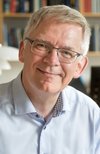
Brian Bech Nielsen
Rector, Aarhus University
Welcome

Poul Nissen
Professor, Dept. Molecular Biology and Genetics, DANDRITE, Aarhus University

Maria Polychronidou
Senior Editor, Molecular Systems Biology, & Training Coordinator, EMBO Press
EMBO and Denmark:
Connecting and supporting life scientists
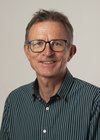
Erik Østergaard Jensen
Head of Dept. Molecular Biology and Genetics, Aarhus University
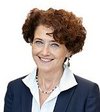
Edith Heard
EMBL Director General
Introducing EMBL and the new strategic programme "Molecules to Ecosystems"
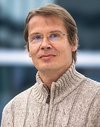
Timo Zimmermann
Team Leader
Light Microscopy Team, EMBL Imaging Centre
Introducing the EMBL Imaging Centre
Timo Zimmermann’s background lies in advanced light microscopy methods and in the service provision of such methods to biological researchers. Training in biology and initially electron microscopy, the main focus of his work has subsequently shifted to the scientific support of light microscopy projects and to method development, first in the Advanced Light Microscopy Facility at EMBL Heidelberg and later as head of the light microscopy unit at the Centre for Genomic Regulation (CRG) in Barcelona. As light microscopy service team leader at the new EMBL Imaging Centre in Heidelberg he has prepared and recently started the operation of the Centre’s light microscopy service. The focus of his work here lies on providing access to advanced LM methods and instruments that are not yet commercially available and to develop correlative workflows together with the cryo-EM service team at the Centre.
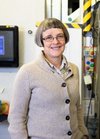
Elizabeth Duke
Team Leader
Structural Biology Unit, EMBL Hamburg
Introducing X-ray Imaging at EMBL Hamburg
Liz Duke has a background in X-ray methods development for life science and has worked at synchrotron facilities for her entire career. After many years developing techniques, instrumentation and beamlines for macromolecular crystallography she realised that there were huge opportunities in the area of biological X-ray imaging. Initially she was involved in the development of cryo soft X-ray microscopy which is a technique for non-destructive 3D imaging of single cells. More recently her interest has been in developing and establishing techniques for hard X-ray imaging of soft biological tissues. This coincided with her move to EMBL Hamburg where she is establishing an X-ray imaging program using the EMBL beamline P14 on the Petra III synchrotron facility there. Currently her research is focussed on the development of high throughput X-ray imaging techniques with a particular emphasis on imaging “large” tissues samples.

Paola Bertucci
Scientific Expedition Manager of TREC
Developmental Biology Unit, EMBL Heidelberg
Lecture title: "Traversing European Coastlines (TREC): Exploring ecosystems and their interactions across environmental gradients"
Paola Bertucci is Scientific Expedition Manager of the TREC expedition (Traversing European Coastlines), which is an expedition to study coastal ecosystems and their response to the environment, from molecules to communities.
The TREC expedition will start in April 2023 and is expected to last until June 2024. During that time, the researchers will gather biological samples and environmental data along the European coastline at more than 120 land-sea transects. In selected sites, time-series measurements will be performed to account for annual changes.
The expedition will combine ocean exploration, conducted by the Tara Ocean Foundation and Tara Oceans Consortium, with parallel sampling of soil, sediment, shallow water, and selected model organisms in various habitats, supported by EMBL’s land-based mobile services and local marine research institutions. Organismal diversity will be studied across scales, from viruses, bacteria, and protists to multicellular groups such as algae and animals. Analysis will involve various meta- and single-cell omics as well as barcoding techniques that will be combined with innovative microscopy pipelines including automated imaging and electron microscopy. This will allow unprecedented detail in associating molecular and morphological data at the single-organism and single-cell level. Besides standard oceanographic metadata, special emphasis will be on detecting metabolites as well as physical and chemical (i.e. inorganic and organic pollutants such as metals, pesticides, hormones, and antibiotics) characterisation of the sampled habitats, providing the environmental framework to the biodiversity and adaptation analyses.
Overall, the expedition will conduct systematic, standardised, and integrated sampling with multimodal environmental metadata acquisition. This integrated profiling across environmental and man-made gradients of micro- and macroscopic life will enable us to obtain a first of the kind, pan-European census of European coastal ecosystems.
Find more information here: www.embl.org/about/info/trec/expedition/
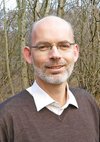
Jens-Christian Svenning
Professor
Dept. Biology, Section for Ecoinformatics and Biodiversity, Aarhus University
Lecture title: "Ecological Dynamics in a Novel Biosphere"
Jens-Christian Svenning is the director of Center for Biodiversity Dynamics in a Changing World (BIOCHANGE). His research is centered on biodiversity and ecosystems, integrating “Big Data” ecology with field-based ecology, remote sensing and paleoecology and socio-ecological systems, and has joint focus on fundamental questions with applied research in climate change, alien invasions, conservation, rewilding and sustainability science. Prof. Svenning works on both plants and animals. His work is global in scope, with long-term research foci not only in Europe, but also in Latin America, Africa and East Asia.
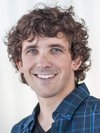
Antton Alberdi Estibaritz
Associate Professor
Globe Institute, Section for Hologenomics, University of Copenhagen
Lecture title: "A multi-layered approach to interactions between life forms across the globe"
Antton Alberdi Estibaritz is a molecular evolutionary ecologist interested in understanding how interactions between life forms (mainly animals and bacteria) affect ecological, evolutionary and applied processes. He uses multi-omics to jointly analyse functional attributes of animal genomes and associated microbial metagenomes, to try to disentangle the complex interactions between them and understand the relevance of such an interplay for bacteria, animals and ecosystems.

Nassos Typas
EMBL Group Leader
Systems Microbiology, Genome Biology Unit, EMBL Heidelberg
Lecture title: "Probing the interface of drugs and human gut microbiome"
Nassos Typas and his research group work at the interface of molecular microbiology and systems biology. They develop quantitative systems-based approaches to study bacterial cellular networks in the context of their interactions with the environment, other bacteria, the host or phages. They then combine this information with targeted molecular approaches to mechanistically dissect new bacterial gene functions and processes that manifest the interactions with their biotic and abiotic environments. The lab current interests lie on toxin-antitoxin systems, phage-bacteria interactions, antibiotics, and the human gut microbiome.
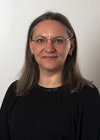
Simona Radutoiu
Associate Professor
Dept. Molecular Biology and Genetics, Section for Plant Molecular Biology, Aarhus University
Lecture title: "Microbial associations at the plant root-soil interface"
Simona Radutoiu's research aims to understand how signalling between plant hosts and the associated microbes contributes to the establishment of beneficial ecological niches at the root-soil interface. She and her research group use plant and bacterial genetics, molecular tools and bioimaging to study contrasting associations (eubiosis versus dysbiosis) and microbial environments of increasing complexities (single microbes- tailored microbial consortia- soil complex microbiota) to provide a mechanistic understanding of how plants select and accommodate beneficial microbes. Their long-term goal is to provide solutions and tools for improving the ability of plants to benefit from these microbial interactions in sustainable crop production systems.
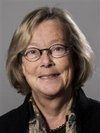
Lone Gram
Professor
Dept. Biotechnology and Biomedicine, Section for Microbial and Chemical Ecology, Center for Microbial Secondary Metabolites (CeMiSt), Technical University of Denmark
Lecture title: "Role of microbial antibiotic molecules in microbial ecosystems"
Lone Gram leads a Center of Excellence on microbial secondary metabolites (cemist.dtu.dk). She and her group has studied bacterial interactions and exploited these in food biopreservation and aquaculture biocontrol. Here, they have spear-headed work demonstrating that marine roseobacters producing the antimicrobial molecule, tropodithietic acid, are promising as fish larval probiotics. Lone joined the world-circumnavigating marine Galathea 3 expedition (2006-2007) and established a collection of marine bacteria producing bioactive molecules. They have found a range of novel molecules with antibiotic, antivirulence and immunomodulatory activities produced by these marine bacteria. Currently, they are focusing on unraveling the roles of these molecules, the microbial secondary metabolites with antibiotic activity, both in the producing microorganism and in natural microbiomes and ecosystems.

Mathias Middelboe
Professor
Dept. Biology,
Marine Biological Section, University of Copenhagen
Lecture title: "Deep sea microbial ecosystems"
Mathias Middelboe's research interest and expertise is in virus-bacteria interactions in the marine environments and the role of viruses for microbial diversity, evolution and biogeochemical cycling. In the deep sea ecosystems, he studies the diversity and distribution of viruses and prokaryotes and the effects of viral infections on benthic carbon and nutrient mineralization and the contribution of viruses to the functional properties of their bacterial host cells.
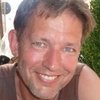
Søren Johannes Sørensen
Professor
Dept. Biology,
Section of Microbiology, University of Copenhagen
Lecture title: "The mobilome - the flexible genepool in complex microbial ecosystems"
Søren Johannes Sørensen and his research group is applying molecular techniques in microbial ecological studies. His research focuses on social interactions in microbial populations. His group’s studies evaluate the extent of genetic flow within natural communities and their response to environmental perturbations.
His research group investigates how microbes work together in in their natural state such as biofilms and the effect this has on microbial communities in in vivo systems such as human or animal gut, soil, or phase change communities. These are related to our in vitro model systems such as our bioflux biofilm system where we can evaluate our findings and examine phenomenon such as horizontal gene transfer or emergent community properties and evolutionary strategies. To do so, they use techniques such as high throughput sequencing, flow cytometry and ultra-high resolution bioimaging or confocal microscopy and microbial reporter systems.
The pioneering work of the Section of Microbiology has had been recognized for its impact in diverse areas in which microbial interactions are critical. These include, soil biodiversity and bioremediation, the role of horizontal gene transfer, human disease progression, the effects of species diversity in plant animal and environmental microbiomes, how microbes interact in evolutionary strategies and the significance of cooperation verses antagonism in microbial systems.
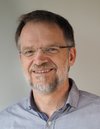
Lars Peter Nielsen
Professor
Dept. Biology, Section for Microbiology, Center for Electromicrobiology (CEM), Aarhus University
Lecture title: "Cable bacteria – living electrical cables in the mud"
Lars Peter Nielsen scientific interest is microbial life at the border between the oxic and the anoxic world and today it is all about cable bacteria. Before stumbling across electromicrobiology, he mainly worked on filamentous sulfur bacteria, microbial nitrogen cycling, and emission of odour and greenhouse gases from agricultural environments.
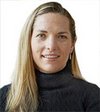
Talya Dayton
Group Leader
Tissue Biology and Disease Modelling Unit, EMBL Barcelona
Lecture title: "Organoid models of plasticity and differentiation in pulmonary neuroendocrine cells and cancers"
Talya Dayton is a new Group Leader at the EMBL tissue biology and disease modeling unit in Barcelona, Spain. Her group develops 3D, in vitro organoid models of human tissue (airway/lung and patient tumors) to recapitulate developmental and cancer phenotypes of a specialized, hormone-producing cell type, the neuroendocrine cell. Talya has two broad areas of interest – development and cancer – and her research group wants to understand how these intersect and can be manipulated for patient benefit.
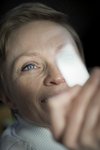
Trine Tramm
Clinical Associate Professor
Dept. Clinical Medicine, Section for Pathology, Aarhus University Hospital
Lecture title: "Identifying biomarkers for benefit of radiotherapy in breast cancer patients: combining tissue biobanks and national registries"
Trine Tramm is consultant, M.D. at Department of Pathology, Aarhus University Hospital with special responsibility for breast pathology. She is a board-member of the Pathology Committee of the Danish Breast Cancer Group. Her research interests are identification of biomarkers with predictive value in relation to the benefit of radiotherapy, particularly in patients with breast cancer or head/neck cancer, including the importance of the pre-existing immune system for the effect of radiotherapy. Furthermore, she is principal investigator of a national study on precursor lesions in breast cancer.

Kjetil Taskén
Director, Institute for Cancer Research, Oslo University Hospital
Group Leader, Dept. of Cancer Immunology
Professor Inst. Clin. Medicine, University of Oslo
Lecture title: "The Norwegian Cancer Precision Medicine Implementation Initiative – a prototype learning ecosystem for precision oncology"
Kjetil Taskén and research group aim to understand tumor immune evasion mechanisms, and how we can interfere to boost anti-tumor immunity. His research group wants to define future precision immune oncology strategies. His research group proceeds with cancer drug sensitivity screening (CDSS) to explore individual drug responsiveness and resistance patterns in patient cancer cells. They aim to develop models to assist individualised clinical decisions in precision cancer medicine (PCM) in oncology and haematology. They aim to understand intracellular signalling networks, the anchoring and localization of signaling complexes through scaffold proteins, how these signalling networks mediate physiological and pathophysiological processes and can be perturbed using drug-like small molecules.
Kjetil Taskén's scientific interests are immune regulation and cancer immunology, cancer precision medicine, cancer biology, cell signaling in health and disease, drug development, translational medicine and innovation.
Kjetil Taskén previously served as Director of the Centre for Molecular Medicine Norway (NCMM), which is the Norwegian node of the Nordic EMBL Partnership for Molecular Medicine from 2008 till June 2018.

Jasmina Al Mousawi
Current PhD student in Epigenetics, EMBL Rome, Italy
Previous student at University of Copenhagen
Lecture title: "Epigenetic mechanisms shaping embryonic gene expression"
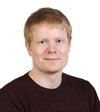
Rasmus Kjeldsen Jensen Postdoctoral research fellow at Structural and Computational Biology Unit, at EMBL Heidelberg, Germany
Lecture title: "Visualizing the membrane proteome of Mycoplasma pneumoniae in situ"
Rasmus Kjeldsen Jensen research focus is on understanding the spatial and structural arrangement of membrane proteins in Mycoplasma pneumonia, and how it is affected by e.g. antibiotics treatment or infection of a host cell. He mainly uses the cryo electron tomography which allows to image intact cells to high resolution. To supplement his in situ findings he uses proteomics approaches to understand which protein complexes are found on the surface of Mycoplasma and how they interact.
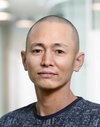
Kenji Maeda
Senior Scientist, Danish Cancer Society Research Center, Copenhagen
Previous postdoc, EMBL Heidelberg
Lecture title: "Lipid landscapes of human cells"
Thank you to the following for supporting the symposium:
The poster prize sponsor is the Danish Biochemical Society (Dansk Biokemisk Forening)